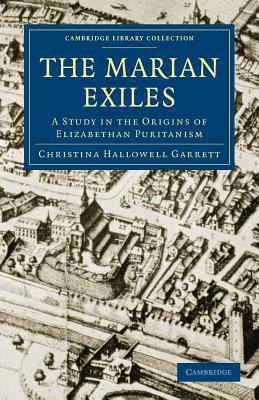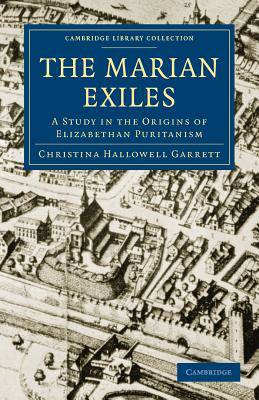
- Afhalen na 1 uur in een winkel met voorraad
- Gratis thuislevering in België vanaf € 30
- Ruim aanbod met 7 miljoen producten
- Afhalen na 1 uur in een winkel met voorraad
- Gratis thuislevering in België vanaf € 30
- Ruim aanbod met 7 miljoen producten
Zoeken
The Marian Exiles
A Study in the Origins of Elizabethan Puritanism
Christina Hallowell Garrett, Garrett Christina Hallowell
€ 80,95
+ 161 punten
Omschrijving
First published in 1938, C. H. Garrett's The Marian Exiles provides details of almost 800 individuals who left England in the reign of Mary Tudor for fear of religious or political persecution. She has searched through continental archives, particularly in Switzerland and Germany, to produce brief biographies of the known exiles, information which was not readily available to English scholars. A significant minority of the emigrants became important under Elizabeth I, and it is clear that they remained in contact with family and friends in England while abroad. The Protestant views of some of the exiles were radicalised by their experiences in Europe, and some attempts to foster plots against Mary were made. Frankfurt expelled John Knox for seditious preaching against Mary, and the town of Wesel asked its English congregation to leave. While some of Garrett's hypotheses are now outdated, the Census of Exiles remains a valuable resource.
Specificaties
Betrokkenen
- Auteur(s):
- Uitgeverij:
Inhoud
- Aantal bladzijden:
- 406
- Taal:
- Engels
- Reeks:
Eigenschappen
- Productcode (EAN):
- 9781108011266
- Verschijningsdatum:
- 10/06/2010
- Uitvoering:
- Paperback
- Formaat:
- Trade paperback (VS)
- Afmetingen:
- 140 mm x 216 mm
- Gewicht:
- 512 g

Alleen bij Standaard Boekhandel
+ 161 punten op je klantenkaart van Standaard Boekhandel
Beoordelingen
We publiceren alleen reviews die voldoen aan de voorwaarden voor reviews. Bekijk onze voorwaarden voor reviews.











